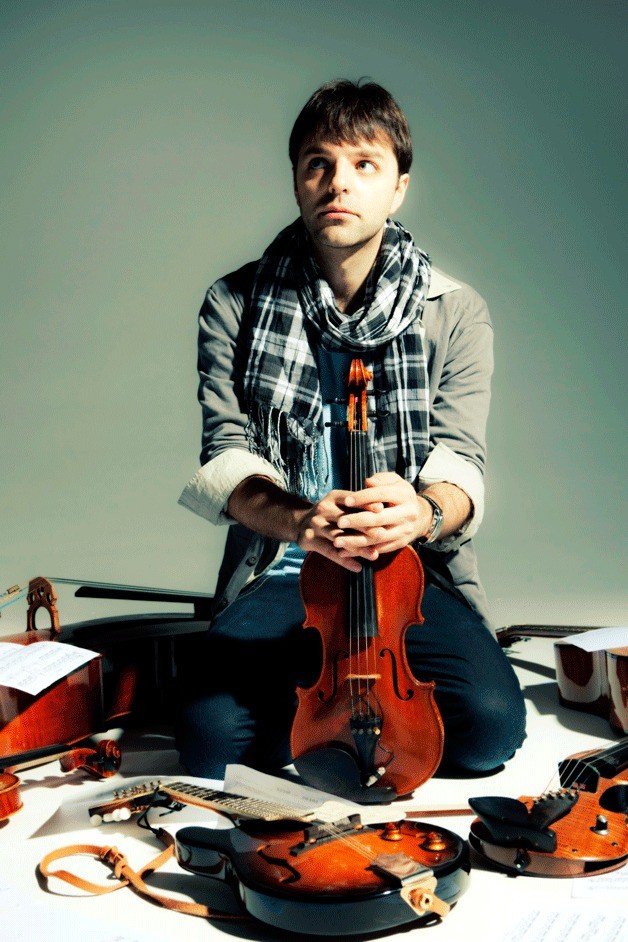
INTERVIEW: ANDREW JOSLYN (SEATTLE, WA)
When listening to Macklemore and Ryan Lewis‘, “The Heist,” one is struck by the string infusion and orchestral nuance across the record, a lingering, melancholic subtlety provided by Seattle-based composer/violinist Andrew Joslyn. His mark has been made on the Seattle music scene, imprinting his yearning sound upon the likes of Kris Orlowski, the Seattle Rock Orchestra, and David Bazan. He encapsulates a growing trend of classical musicians finding a place in the world of rock/pop music through non-traditional means. Yielding a half-hour to my questions, outside the Macklemore tour bus in Santa Anna, CA, his voice is excited but steady.
MUSICAL GROWTH
ANDREW: Well, I started the Suzuki method [for violin] around age five and I did it all through college…and I played some master classes trying to decide if I wanted to go to conservatory or not. I was principal second [violin chair] and was moved to last chair. My audition, I nailed; everything was great. But, I had a coach come into the section, who switched up everything. And, when I found out the reasoning for why I was moved, that really pissed me off…[the coach] didn’t like the teacher that I had. I realized it wasn’t about individual skills; it was about politics.”
A splash of bitterness lingers in his voice as he details his experience at the conservatory and his shift from violin performance to composition before detouring into his pop foray.
“But around that time I joined a rock band and just…started…touring; It’s a whole different world. It’s not held by sheet music; you need to learn everything by ear, because most of the musicians you’re working with aren’t classically trained; They hardly know the difference between an A-major 7th chord versus a…I don’t know…they don’t know theory; it’s better they don’t.”

MUSICAL TASTE
ANDREW: When I was younger, because my parents were both more classically inclined, I was strangely enough listening to Renaissance music.
We share a brief, silly tangent, discussing the specifics of his Renaissance tastes (mostly German) before returning to popular relevance.
ANDREW: But, there was definitely a point where my older brother came at me and was like, “We need to get you listening to contemporary music.” He introduced me to The Police, U2, Tears for Fears, Roxy Music; a good dose of 80′s, classic bands, you know?
An interesting revelation, especially after listening to the arrangements for his collaboration with Orlowski. Joslyn’s sense of rhythm is dually reminiscent of Bach’s strict counterpoint and the insistent, new-wave, eighth-note rhythms of the 1980’s.
JIMMY: [What would you say are your favorite “classical-style” pieces from the various eras of Western Music?]
ANDREW: “Hmm…Baroque would be Bach’s “Bm Sonata Partida for Violin,” especially the Chaccone. Classical era…I jump around a lot with this one. I’ll just go with Beethoven’s 7th Symphony. Just go with that. ‘Cause, I love it. You know for, er, uh, compositional shit. I…I like Beethoven. I don’t know what else to say. I mean we could go on into a whole big thing about it, but yea, I’ll go with that.”
His response is timid, likely the result of professors rolling their eyes at such a popular choice, a sad reflection on the state of musical conservatory culture.
ON MACKLEMORE AND RYAN LEWIS
ANDREW: “Because I had the ability to improvise, it allowed me to do a lot of studio work with rock bands and stuff and…I started working with a friend, Eugene, who was into making hip-hop beats. We threw together a mix tape a couple of years ago and he sent the mix tape to Ben Hagerty [a.k.a. Macklemore], who was like, “Wow this guy’s fantastic; I want to work with this violinist.” I got a phone call a couple of days later and I’ve been working with him ever since. This was at a time when he was just getting out of rehab; He wanted to re-envision himself.”
“They’re independent so they don’t have the money to license samples. So, I’ll go create orchestral scores and hire out my classical friends to record in the studio…or I just go in and record [multitracks] of violin, viola and cello tracks myself.”
He laughs.
“I’m kind of a free-lance contractor or referral system for the guys. If they need a banjo player, I get Ryan hooked up with the right players [in Seattle,] basically making it possible for them to have non-sampled work.”
FUTURE FOR CLASSICAL MUSIC?
ANDREW: “I love orchestras…but what turned me off was the ecosystem of the orchestra: the ego, politics and, kind-of, “elitism.” Like, the snobbery: ‘Oh we’re only going to play these classical pieces,’ which is…”
Hesitation.
“…good, in-as-of-itself. However, right now, orchestra programs are going bankrupt. It’s a model that’s not working anymore because they’re trying to cater to high-end clientele and not reaching out to younger audiences. The programming and marketing needs to be updated. I don’t know if that would be the recipe for success, but it might make things more interesting. Orchestras just have to fight that [elitist] stigma…so…I don’t know. That’s something I need to dwell on more, myself.”
I’m reminded of the ethos for the Bang-on-a-Can NYC musical collective, driven by a love for classical instrumentation, but yearning to express the rock sensibility ingrained in the musical blood of most Americans.
“I haven’t really done a lot in the classical world lately. Mostly, I’ve been…working with the Seattle Rock Orchestra. Their whole thing is this…alternative plain. They absolutely embrace the fact that I play more by ear but still have my sight-reading chops; I feel like I have the best of both worlds. That’s why I didn’t audition for the Seattle Symphony Orchestra…I didn’t want to put myself in a position where people would judge me based on my [pop] background and for taking extra time to explore my own relationship with music.”
The affection for Beethoven begins to make sense, an early champion of musical self-expression. Across the board, Joslyn’s orchestral arrangements are acutely apt in sonically enhancing the songs’ background textures, demanding little in terms of close attention from the listener, but nuanced enough to casually attract the ear, letting us into the Joslyn’s, seemingly self-expressive, musical world.
“I’m always challenging myself to bring classical musicians/instruments to contemporary bands. I’ve always wanted to inject my own sound; now I’m just doing it on a grander scale.”
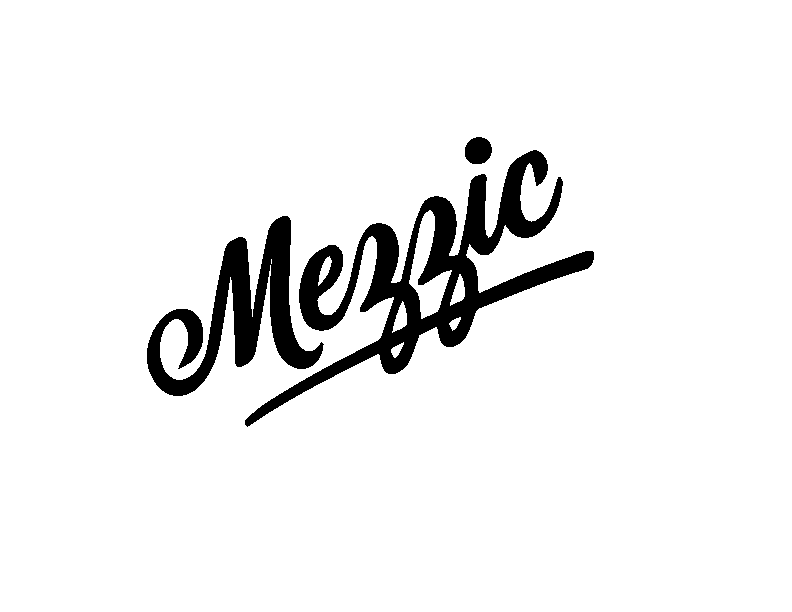
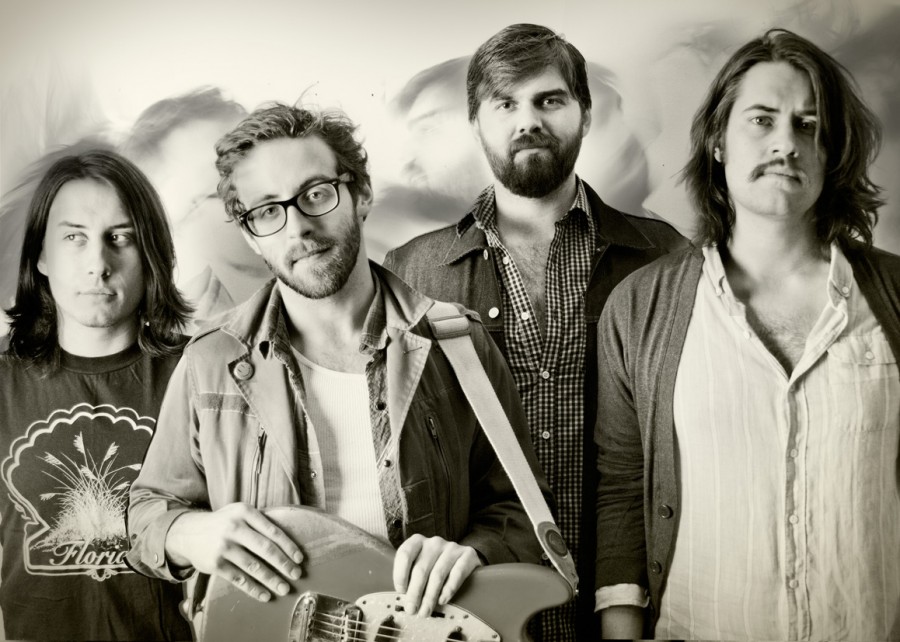
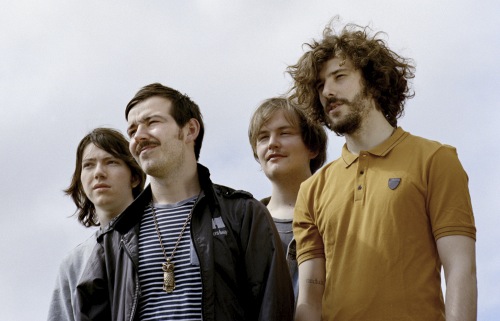
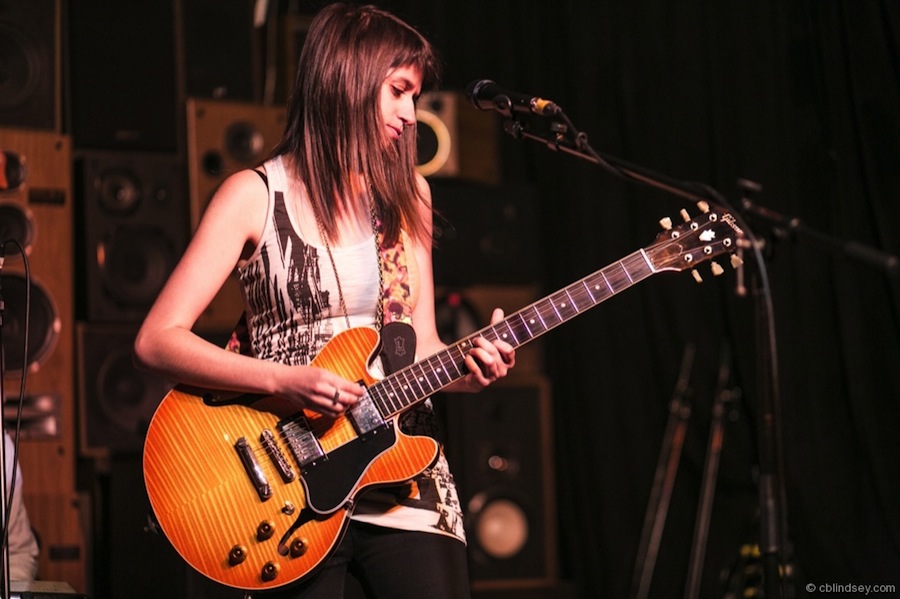
Post a comment